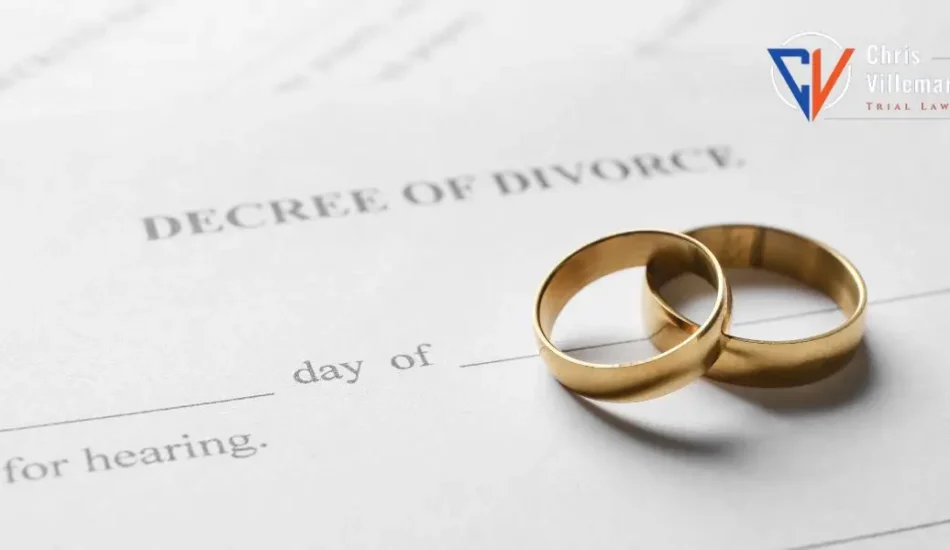|
|
Last Modified on Aug 05, 2024
Working through the end of a marriage can be emotionally, financially, and mentally challenging. For those wondering, “How do I get a divorce in Louisiana?” it is important to understand the general process so that you know more about your options. Take control of your situation and protect your interests during a divorce by working with an attorney throughout the process.
Filing for Divorce in Louisiana
Before the initial filing process, check Louisiana’s residency requirements to begin the divorce. If these are met, one spouse must start the petition for divorce. This petition is a detailed document that provides information about the spouses, the divorce, and additional requests for the court to weigh in on issues surrounding child support, child custody, property division, or spousal support.
Once the paperwork is filed, the papers must be served. This must normally be done by an individual other than a spouse and can be achieved by a sheriff, a private company, or the mail in certain circumstances. The serving process allows the other spouse to respond within a certain timeframe. Depending on the willingness to negotiate between the spouses, there may or may not be additional court appearances needed to work out the details of the divorce.
The Timeline for Divorce
How long a divorce takes greatly depends on how well the spouses work together. If they agree and can submit the final paperwork relatively quickly, the timeline mostly depends on how long the court takes to finalize the paperwork.
If there are disagreements, the divorce can take significantly longer. Disagreements usually require court appearances, which could take a significant amount of time, depending on how busy the court is. The more issues spouses disagree on, the longer the case might take. Multiple discovery phases and trials each push the finalization date back.
Alternatives to Court
Not every couple needs to go to court to finalize issues surrounding their divorce. There are alternative forms of conflict resolution that can help speed up the process and lower the overall cost. One of the most popular options is mediation. This involves a neutral third party that can help the spouses work together to come to an agreement on important issues. It increases control over key outcomes and can be less stressful than going to court.
Arbitration is another alternative that is more formal than mediation. A private judge, known as an arbitrator, makes decisions on each spouse’s behalf, depending on the available information. While this can still save the spouse’s time and money, these decisions are usually legally binding, similar to a decision made by the parish court.
How Is Property Divided?
In a Louisiana divorce, the property is usually divided in half due to community property laws. There are certain exceptions to this if there are assets that a spouse acquired before they were married or received through an inheritance. This process normally starts with each spouse identifying their assets and figuring out which ones qualify as community or separate property.
Once all the assets and debts are totaled, the court usually splits the value down the middle, unless there are reasons why this standard should not be used. Other factors that impact property division include how long the couple was married, the financial situation and income of each spouse, and whether one spouse significantly financially contributed to the other one during the marriage.
Child Custody
In any decision involving children, Louisiana courts try to think about how the child will benefit the most. They normally prefer that both parents have some form of custody over their children, but they sometimes award sole custody depending on how the child feels about each parent and each parent’s living situation.
If it is determined that child support is needed, it is calculated based on official state guidelines that take the number of children being supported and each parent’s income level into account. If one or both parents’ financial situations change in the future, this agreement can be modified to reflect these changes.
FAQs
What Are the Residency Requirements for Filing for Divorce in Louisiana?
The residency requirements for filing for divorce in Louisiana refer to the fact that at least one spouse must live in Louisiana for a period before filing in the State. The divorce petition itself must be filed either in the parish where a spouse lives or in the parish where the couple most recently lived. Following these residency requirements helps make sure that the correct courts have control over your divorce proceedings.
How Do I File for Divorce in Louisiana?
Filing for divorce in Louisiana is a multi-step process. After meeting the requirements for residency, file the first petition in the correct court. Once this paperwork is filed, divorce papers must be officially served to the other spouse. That individual then gets a period of time to respond to this serving, and the divorce then progresses further. Each spouse must negotiate about important things like property division and child custody or support.
What Is the Difference Between a Contested and Uncontested Divorce?
The difference between a contested and uncontested divorce depends on the willingness of the spouses to work together. Divorce is normally labeled as contested if the spouses cannot agree on important issues and normally requires the spouses to go to court to resolve their differences. If the spouse can use things like mediation or arbitration to work through difficult issues in their divorce, then it is considered uncontested and often goes faster.
Can I Get a Divorce Without Going to Court in Louisiana?
You can get a divorce without going to court in Louisiana if both spouses are able to come to an agreement. If they work together and submit paperwork to the court through forms of alternative dispute resolution, it is possible to avoid physically attending court. A final hearing might be necessary, but these appearances are usually brief. The individual circumstances of attending court for a divorce vary widely depending on the situation.
Louisiana Divorce Attorney
If you are considering a divorce in Louisiana, you deserve the support and the help of an experienced Louisiana divorce attorney. Schedule a consultation with Chris Villemarette, Trial Lawyer, to discuss your case. The earlier you understand your options, the more control you might have over the complicated divorce process. Take the necessary steps for a peaceful resolution by working with our experienced legal team.





